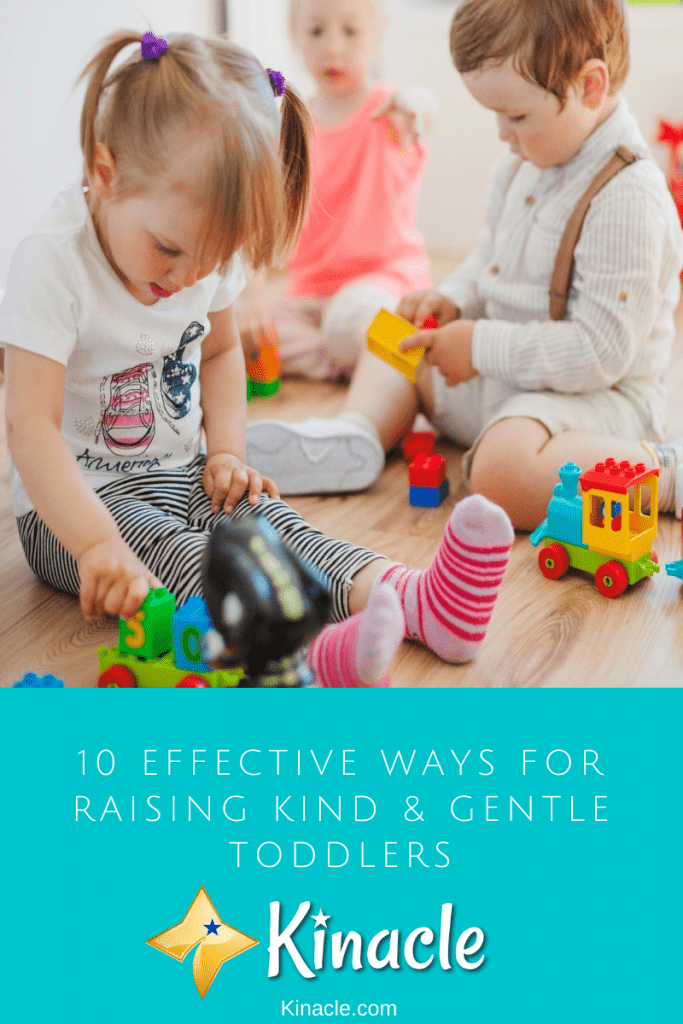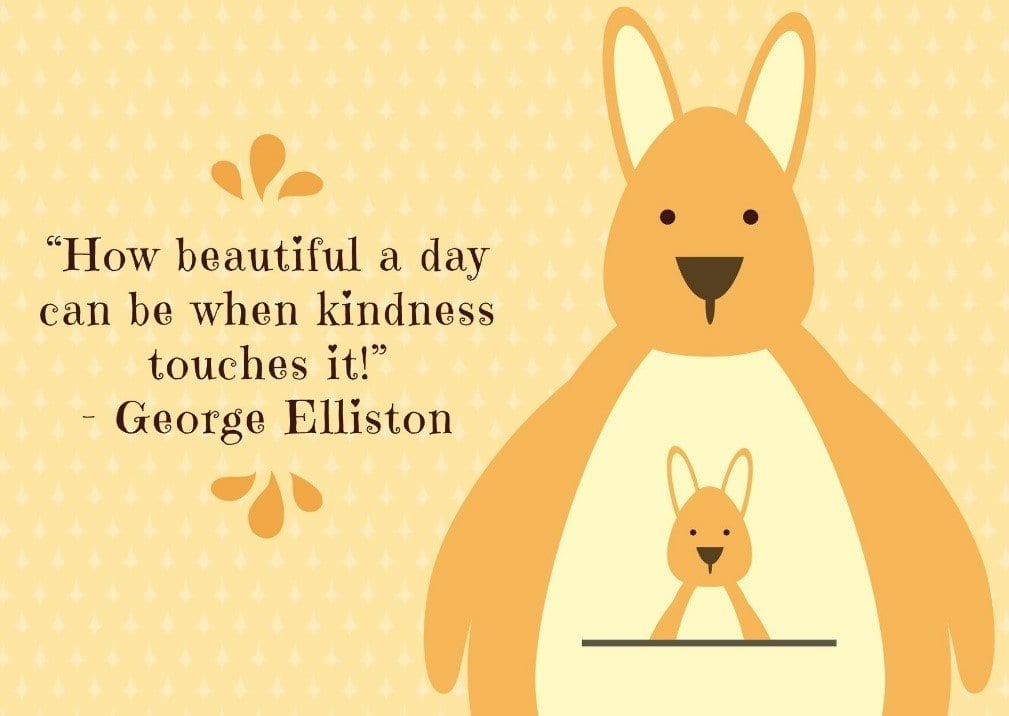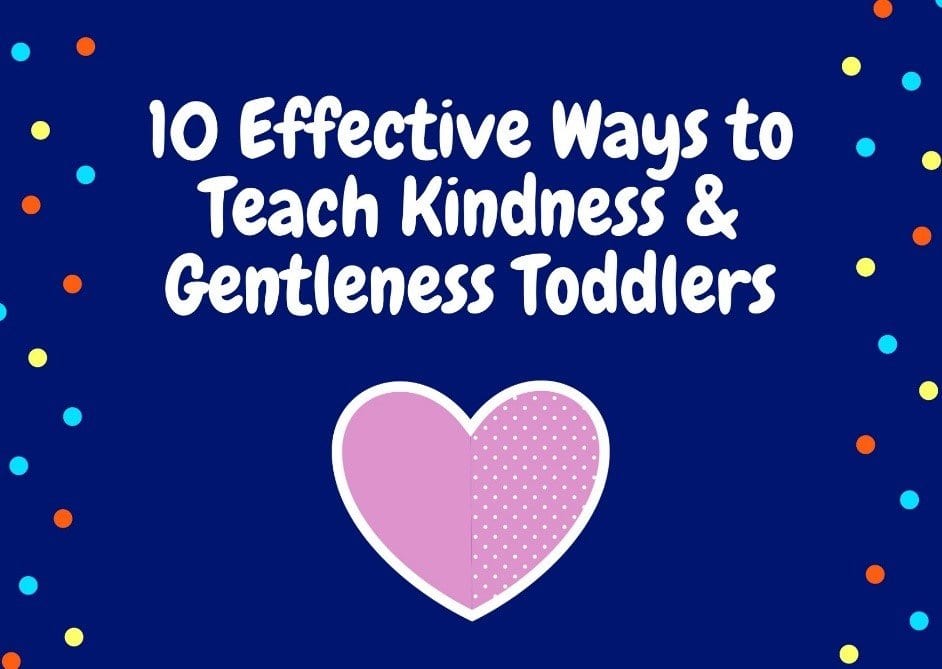
Terrible twos? Terrifying threes? The ages 12 to 36 months can make our tiny tots seem like little monsters. But did you know that you can raise your tiny terrors into kinder, gentler human beings? Read on to get some practical tips from the Kinacle team.
With minds like sponges and little hands always ready to discover and play – the day-to-day demands of raising toddlers can be exhausting. But, as parents, we all want what is best for our children; not just for them to be active and healthy but also for them to grow up into nice kids and, eventually, decent adults.
Also, don’t us parents live for compliments about our little ones behaving without us there to see it? It makes us so proud when we here staff at the day care center say “Oh, Lily was such a helpful dear today!” or “Sean helped out his friend at the playground. What a nice boy!”. Hearing these kind words makes us just beam with joy. In a way, it helps validate our efforts in doing our very best to teach our young ones to be well behaved.
On the other hand, seeing our cute 2-year-olds displaying aggressive behavior during a playdate or with other children in the playground makes us question our parenting skills. Parents usually ask themselves – Is this normal? Am I raising a mean kid? Am I even doing parenting right? What should I do?
This article aims to help you out with those questions (and more). More importantly, we want you to know that we see you, mom and dad! We know firsthand how lonely parenting can sometimes feel and even if this is just a blog on our website and we’re on either side of each other’s screens – it’s still comforting to know that someone just gets us.
That said, let’s first start with the basic question – why is it important for toddlers to learn how to be gentle and kind?
We can think of so many answers to that question! But we’ll try to narrow it down to the basics:
- We can’t always be there to correct their misbehaviors. This means that if we consistently start modelling and teaching kindness and gentleness at home then your baby naturally just learns this from you. As a result, our little ones won’t have a hard time behaving well outside of the home, as well, e.g. in day care, at grandma’s house or during a play date.
- We want them to start learning how to behave well around siblings, pets and playmates. Babies are naturally social beings and love to be around people and pets. Sure, there are some babies that are simply shy and reserved but, eventually, they will come out of their shell and interact with the world around them. Being kind to others is an important trait as they grow older.
- It’s the right thing to do. Common sense simply tells us that in order for our children grow up as decent adults who are generally good, kind and caring, we must start teaching them these values at a young age. Also, science says acts of kindness actually contributes in a child’s success. In an article published in December 2019 by The Atlantic, Wharton Psychologist Adam Grant and his wife, Allison Grant, writes about how teaching kindness can actually lead to success as adults.
- Kindness makes everyone happy – including young children. Aptly termed by psychologists as the “helper’s high”, don’t acts of kindness just give you that happy glow? In fact, countless self-help articles include “go out and do a random act of kindness” as an effective way to deal with mental and emotional issues. In the same way, when toddlers recognize the feeling of happiness and satisfaction that they feel when they are being kind – either at home or with others, they’ll remember that feeling and want to do it again.
Kindness simply teaches our children to treat others better, which in turn, teaches compassion. In a world that can oftentimes be mean and difficult to live in, sometimes just being nice and gentle makes it a much better place.

Any parent with a toddler, though, knows how challenging it is to teach these little tykes anything! It seems like all they want to do is run around, be silly, laugh, and then sleep once they get too tired. But, being kind and gentle might be something that’s easier to teach to little ones.
Research shows that babies are naturally born with empathy and a range of emotions – they get startled when they hear loud noises, cry when they see someone in distress and reach out to their parents when they feel something is wrong. As they grow a bit older, we oftentimes see toddlers comfort other children in the playground or stop what they are doing when they see a playmate hurt or crying. Toddlers also naturally call out to their parents if they see anything wrong happening around them.
Bottom line is that young children display natural kindness and gentleness, and it’s our job, as parents, to keep this going. And because we know that it’s such a challenge, we’ve lined up some practical tips for you.

1. Understand your toddler’s emotional and developmental stages
As mentioned briefly above, babies and toddlers display a natural propensity towards kindness and gentleness but anyone who’s witnessed a toddler showing aggressive behavior might have a hard time believing it.
But as natural as empathy is to young children, so is aggression. Child development experts say that hitting, biting, throwing tantrums and occasionally throwing random objects right at you or another child is a normal part of their development.
The best way to deal with toddler aggression is to first understand that small children do not yet know how to communicate their feelings, they have very low (close to nonexistent) impulse control and they have a strong urge to show their independence.
For example, if your toddler is playing with another toddler and the playmate takes away a toy that your child owns, your child will feel frustrated and try to take away the toy. Of course, the other toddler wants the toy, too hence your child might resort to hitting or biting just take the toy back.
Of course, just because aggression is natural impulse to toddlers doesn’t mean that this should be ignored. In fact, it should be corrected right away.
In these instances, we suggest doing the following:
- A good old time out is a classic solution – calmly remove your child from the situation; maybe carry them towards the kitchen or out in the backyard or porch for 2-minute time out. For safety reasons, never leave them completely unattended.
- Talk to them in a gentle voice and in simple, understandable words that it’s not okay to hit or bite other children.
- For older toddlers – you might want to establish empathy and ask them how they would feel if they were the ones being bitten or hit.
- For younger toddlers –you can allow to let their emotions out and then calmly but firmly saying to them “No that wasn’t good. No biting or hitting.”
- Finally, teach them to apologize after they have hurt someone.
These suggestions may not work for all types of scenarios or your own toddler’s unique character, but however you may feel is a suitable way to deal with your toddler’s aggressive behavior, the important thing is to do it consistently. Over time, your toddler will learn that each time they hit, bite or slap, mom or dad will always say “no that’s not right” and send them on a time out; they will eventually learn not to repeat the same behavior again.
2. Model kind behavior and teach gentleness consistently
As our child’s first teachers, it’s important for us to become role models of kindness and gentleness. Of course, we’re only humans and parenting is exhausting! We might occasionally yell or raise our voices but overall, if we consistently look for teaching opportunities for kindness, we’re already on the right track.
Here are some ideas for you:
- Greet each day with kindness. Start mornings with a gentle, happy tone of voice every morning as your baby wakes up and consistently all throughout the day.
- Show how much you love your family. A hug for your spouse, a gentle kiss on the forehead when your oldest heads off to school or serving food to your family first at dinnertime before you settle down to eat – little acts of love for your family are great models for kindness.
- Read books, watch movies or videos that show kindness and gentle behavior. Luckily, both kindness and gentleness are common themes in books and movies. If your baby is watching a movie or video, make sure you’re around to point out the relevant themes and animatedly narrate what’s going on.
- Explain acts of kindness in places outside of your home. Even instances as small as maybe someone saying “Excuse me” before passing through or someone picking up trash and depositing it into the trash bin, should things like that happen around you, point it out to your young children and explain how every little act of kindness counts.
3. Quickly, firmly and consistently reprimand bad behavior
Bad behavior, if left unchecked, can develop into bad habits later on in life. Just like dealing with toddler aggression, it’s best to correct any form of bad behavior as soon as you see it. With toddlers, since they’re still learning how to act out their feelings appropriately, it might be a challenge.
Here’s some toddler discipline basics for you:
- Reprimand in a calm manner.
- Set clear boundaries and give firm consequences.
- Try to get down to eye level when reprimanding e.g. kneel, sit or squat. According to recent research, looking your child in the eye helps you connect with your child effectively.
- Don’t be afraid to say “No”.
More importantly, when disciplining your toddler, always make sure that love is at the center of every stern remark and remember that you are trying to nurture their instincts for kindness and gentleness so – end every time out with a hug or when you see that they’re sincerely sorry, seal it with a peck on the cheek and maybe a cookie or two.
4. Reinforce kind and gentle behavior
Just like you need to be quick to reprimand and correct bad behavior, it’s also advisable to praise and notice your toddler’s good behavior when you see it! Little ones are natural people-pleasers and they simply bask in your praises.
Here are some do’s and don’ts for you:
- Do notice them when you catch them being kind or gentle.
- Don’t reward kindness with treats or toys.
- Do praise them for their efforts, too. Even if they didn’t quite get it right, the effort they put into what they’re doing matters the most.
- Don’t use point systems or star stickers to reinforce kind behavior. Young children cannot yet comprehend these type of reward concepts.
- Do praise toddlers for improvements compared to past behavior e.g. “Wow, you’re helping mommy better with picking up the toys today! High five!”
- Don’t offer rewards before your toddler shows any act of kindness. That would be considered a bribe and we want to try avoid teaching instant gratification especially to toddlers.
- Do tell your toddler how their acts of kindness make you feel in order to encourage them to focus on their own feelings, as well e.g. “Mama’s so happy that you’re helping me clean up today. What a good boy!”
Again, with young children, consistency is key. Both reprimanding negative behavior and reinforcing positive behavior should always be consistent so that your toddler will learn its outcomes.
5. Do good deeds – as a family
A toddler that grows up around kind deeds will most likely grow up to love doing good for others, as well. Whenever you can, try doing good deeds as a family and take your little one with you.
Here’s a quick list of “kindness activities” you can do as a family:
- Volunteer – at your church, at your kids’ school or at the local animal shelter, volunteering is simply something that families can definitely do together.
- Donate – unused clothes, toys, food or anything in your home that someone in need might benefit from, donating can be a kindness activity that your whole family can get involved in.
- Bond with the elderly – whether it’s regularly taking your toddler to visit an elderly grandparent or signing up for bonding activities with seniors at the local retirement center, toddlers simply love the attention that older folks can give them.
- Join a family fun run for a cause – your toddler might be too young to join and one parent might need to stay in the sidelines with your little one, but it’s definitely a family activity you’d want to start taking your toddler to.
- Be kind to animals even at home – for families with pets, it’s easy to let your toddler learn about being kind to animals but for pet-free households, one great idea is to create a homemade bird feeder. Let your little one help out with putting bird seed and then observing quietly as the birds come to enjoy free food.
We’ve talked about the 5 most important ways to teach kindness. Here’s a few more!
6. Watch your own temper
Keep it cool, mom and dad! As frustrating as toddlers can sometimes get, they need to see us control our temper so they can learn to control theirs.
7. Make sure your baby gets enough unstructured play time
While children thrive on routine, too much of it will probably leave them on edge. Give them some time in the day to just run around or explore as much as they want. This will ensure that they’ll have the chance to “let off steam” and just act like a toddler that they are. Letting them be active at the right times during the day will help them develop regular sleep patterns, as well.
Which brings us to…
8. Make sure your baby gets enough sleep
Young children often get grumpy and act out when they’re over-tired or over-sleepy. Make sure they get enough rest with regular naptimes and a consistent bed time routine. Many veteran parents believe that a well-rested child is a well-behaved child.
9. Make sure baby gets the proper nutrition
Making sure your toddler is getting enough nutrition is tricky! But the most basic tip is to ensure they are fed with high-energy, high-nutrition food young toddlers need. Much like us, young children also get a bit cranky if they aren’t fed well or, on the other hand, if they’re fed just a little too much. To help you raise a kind, gentle toddler, we must also make sure they’re getting the right amount of nutrition.
10. Control screen time
According to child development experts, too much screen time can interfere with a toddler’s overall development. Also, even if kindness and gentleness are common themes in children’s videos, your 2-year-old might still watch TV shows or YouTube videos showing aggressive behavior that can affect how they act, as well.
Our recommendations are to – limit screen time for toddlers up to one hour per day only and be actively involved whenever your toddler is watching something on TV, iPad or phone.
Conclusion
Teaching young children to be kind and to act in a gentle manner is the perfect opportunity to pave the way for them to grow up to be nicer kids and decent adults. And even it seems like an uphill climb, it’s all worth it. We hope our tips will help inspire you to teach kindness not just during your children’s toddler years but all throughout their lives, as well.
Do you practice kindness activities in your own home? If you’d like to share your stories with us, let us know! We’d love to hear from you.
Leave a Reply